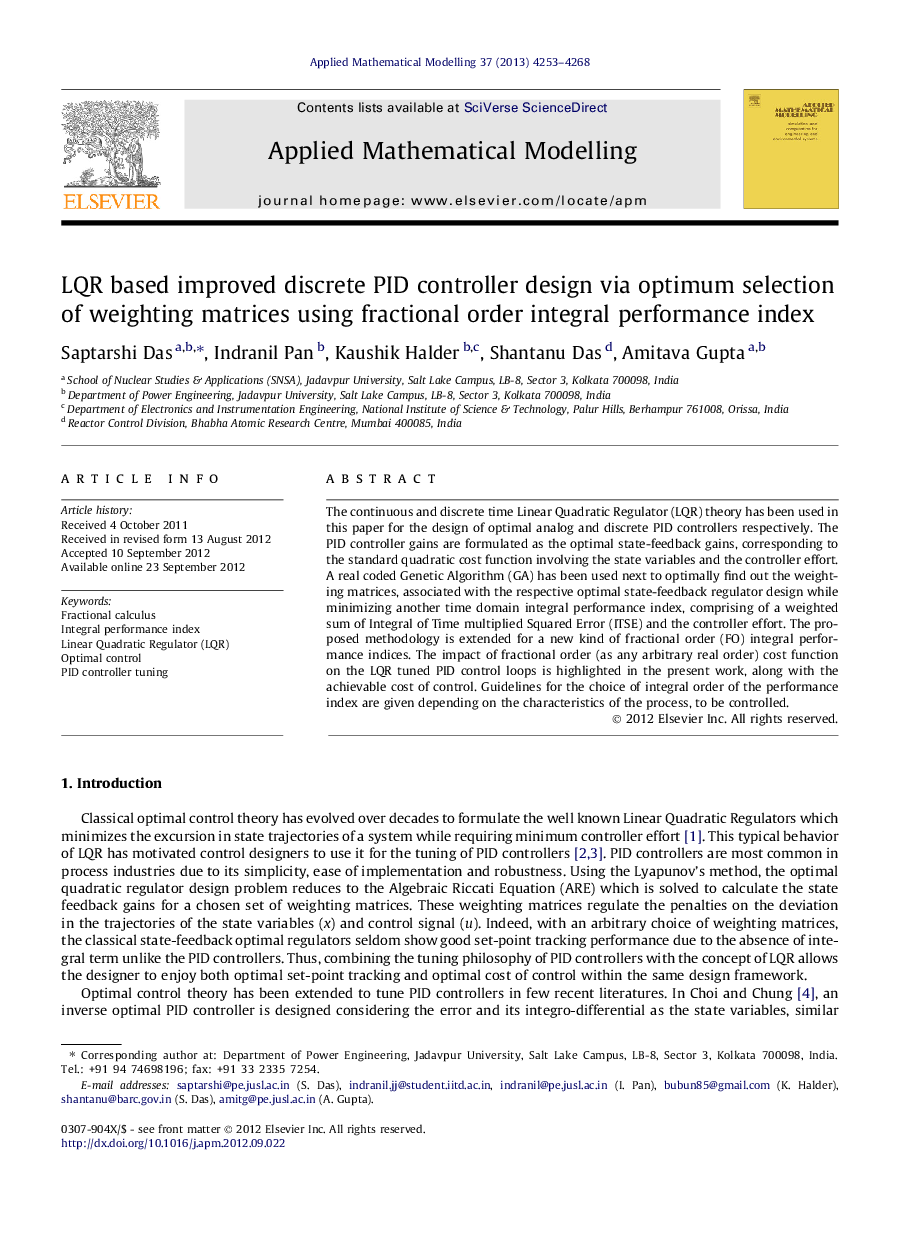| Article ID | Journal | Published Year | Pages | File Type |
|---|---|---|---|---|
| 1704688 | Applied Mathematical Modelling | 2013 | 16 Pages |
The continuous and discrete time Linear Quadratic Regulator (LQR) theory has been used in this paper for the design of optimal analog and discrete PID controllers respectively. The PID controller gains are formulated as the optimal state-feedback gains, corresponding to the standard quadratic cost function involving the state variables and the controller effort. A real coded Genetic Algorithm (GA) has been used next to optimally find out the weighting matrices, associated with the respective optimal state-feedback regulator design while minimizing another time domain integral performance index, comprising of a weighted sum of Integral of Time multiplied Squared Error (ITSE) and the controller effort. The proposed methodology is extended for a new kind of fractional order (FO) integral performance indices. The impact of fractional order (as any arbitrary real order) cost function on the LQR tuned PID control loops is highlighted in the present work, along with the achievable cost of control. Guidelines for the choice of integral order of the performance index are given depending on the characteristics of the process, to be controlled.
